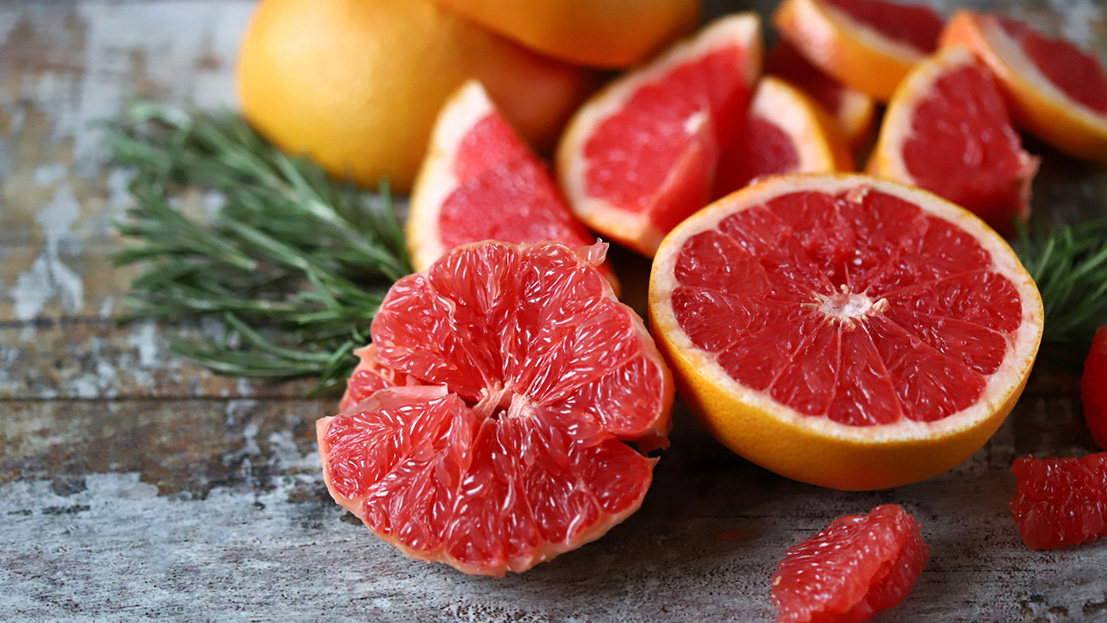
- Fun fact: Grapefruit originated due to an accidental cross-breeding of a sweet orange and a pomelo.
- Grapefruit is a member of the Rutaceae botanical family which also includes clementine, kumquat, lemon, lime, orange, pomelo, tangelo and tangerine.
- There are multiple varieties of grapefruit which have slight differences in taste, color, amount of seeds and nutrition.
- Grapefruit can interact with certain medications. If you use prescription medications, contact your provider or pharmacist to see if grapefruit is safe for you.
Nutrition
- 1 cup of grapefruit sections with juice is an excellent source of vitamin C and vitamin A and a good source of copper and vitamin B5.
- Vitamin C is an antioxidant that assists in collagen and connective tissue formation, immune function and would healing.
- Vitamin A promotes growth and development, immune function, red blood cell formation and health vision.
- Copper supports bone formation, energy production, iron metabolism and nervous system function.
- Vitamin B5 also known as pantothenic acid aids in converting food into energy, fat metabolism, and hormone production.
How to Purchase, Prepare, and Store
- Purchase grapefruits in season from November to May for best flavors.
- Select grapefruit with thin, smooth, firm skin that is free from blemishes, and heavy for its size.
- Prepare the grapefruit by washing the outer skin. Then cut in half and using a knife cut around each triangular segment to loosen the grapefruit pieces. Scoop out the grapefruit and squeeze out any remaining juice.
- Eat grapefruits raw, add to a salad, salsa or smoothie, or grill or juice for a delicious treat.
- Store grapefruit at room temperature for up to 1 week or in the refrigerator for 2 to 3 weeks.
Nutrition Facts
1 cup raw pink & red grapefruit, with juice
- Calories: 69
- Protein: 1.26 g
- Fat: 0.23 g
- Carbohydrate: 17.2 g
- Fiber: 2.53 g
- Calcium: 34.6 mg
- Magnesium: 18.4 mg
- Potassium: 292 mg
- Vitamin C: 85.1 mg
- Folate: 20.7 µg
- Vitamin A: 29.9 IU
Source: fdc.nal.usda.gov
Recipes
Request an Appointment
